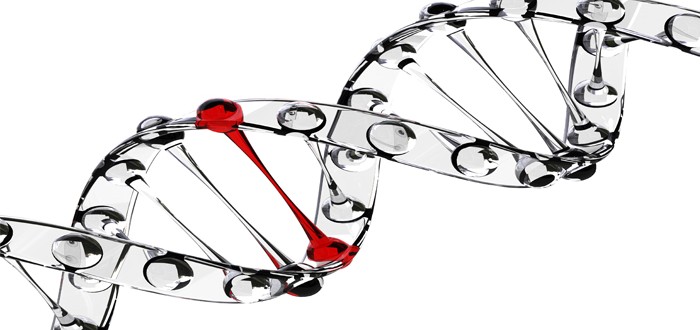Good news if you are among the small percentage of mesothelioma patients who carry what’s known as the TRK oncogene.
Scientists at the University of Colorado say the TRK oncogene could provide mesothelioma doctors with yet another avenue of attack against the killer disease.
The TRK oncogene is a mutation that some people have inside them from before birth. But nobody knew about the TRK oncogene until its discovery in 1982 and nobody understood its potential as a target for cancer treatment — until recently, that is.
Other than that, it’s not really a good thing to carry this oncogene. That’s because if you do, mesothelioma has a much easier time getting started and then spreading.
The only thing worth cheering about is that scientists think they might be able to alter this gene’s ability to act as a mesothelioma enabler.
Another Mesothelioma Therapy Target
The scientists who believe the TRK oncogene can make a suitable therapeutic target wrote about their views in a recent issue of the journal Cancer Discovery.
“We didn’t initially discover the gene. But now technology lets us find the gene in actual patient samples,” say investigators at the Colorado University Cancer Center, which is part of the CU School of Medicine. “Drugs are available to target [TRK], making it possible to treat TRK cancers in clinical trials in ways we only dreamed of 32 years ago.”
When the TRK oncogene was first found, it was thought to be present in patients suffering from colon cancers. However, in 2013, researchers began uncovering associations that tied the TRK oncogene to at least 11 other types of cancer.
Among the cancers making that list were cancers of the lung. Pleural mesothelioma is one such cancer.
Scientists believe TRK oncogenes initially play a role in the structuring of the nervous system before birth. The TRK oncogenes are supposed to ensure that the nervous system’s neurons form properly.
When the job of neuron development is completed, the TRK oncogenes switch themselves off. They don’t die; they merely power-down and go dormant.
Oncogene Tricked Into Helping Mesothelioma Progress
Since the TRK oncogenes don’t really have any function beyond that point, they’re supposed to stay dormant for the remainder of your life.
Unfortunately, TRK-friendly cancer tricks the dormant TRK oncogene into waking up and making a return to action. Only instead of helping neurons form, they help cancer cells develop.
When the researchers first started looking into this, they believed the TRK oncogenes were impervious to modification pharmacologically. Through testing and other research, they now know they were mistaken.
Consequently, “an entire class of drugs has been developed to target this type of genetic abnormality, namely ‘tyrosine kinase inhibitors,’ which are able to precisely turn off these genes,” they say.
The new drugs have names like RXDX-101, TSR-011, LOXO-101, and PLX-7486.

